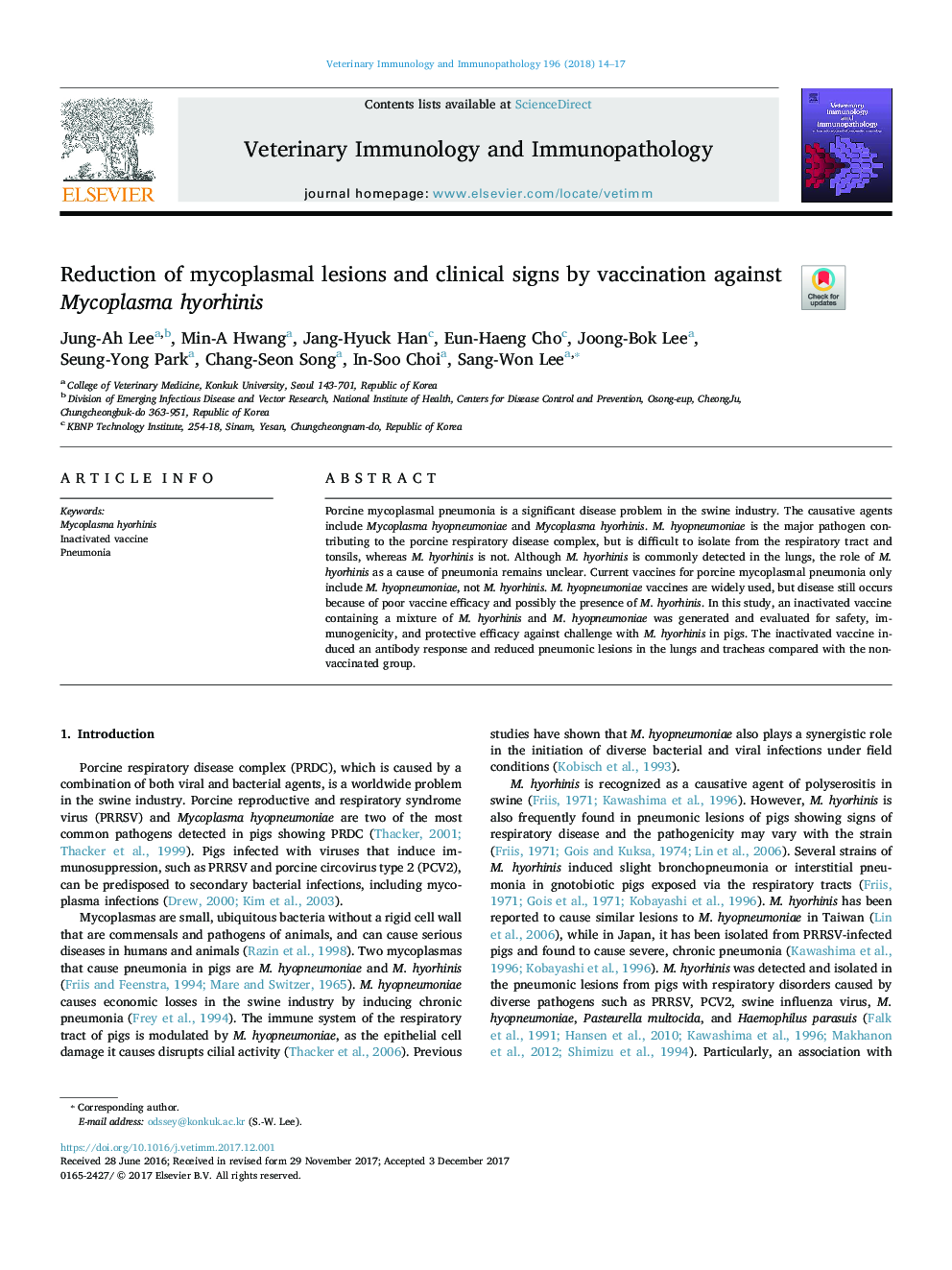| Article ID | Journal | Published Year | Pages | File Type |
|---|---|---|---|---|
| 8504765 | Veterinary Immunology and Immunopathology | 2018 | 4 Pages |
Abstract
Porcine mycoplasmal pneumonia is a significant disease problem in the swine industry. The causative agents include Mycoplasma hyopneumoniae and Mycoplasma hyorhinis. M. hyopneumoniae is the major pathogen contributing to the porcine respiratory disease complex, but is difficult to isolate from the respiratory tract and tonsils, whereas M. hyorhinis is not. Although M. hyorhinis is commonly detected in the lungs, the role of M. hyorhinis as a cause of pneumonia remains unclear. Current vaccines for porcine mycoplasmal pneumonia only include M. hyopneumoniae, not M. hyorhinis. M. hyopneumoniae vaccines are widely used, but disease still occurs because of poor vaccine efficacy and possibly the presence of M. hyorhinis. In this study, an inactivated vaccine containing a mixture of M. hyorhinis and M. hyopneumoniae was generated and evaluated for safety, immunogenicity, and protective efficacy against challenge with M. hyorhinis in pigs. The inactivated vaccine induced an antibody response and reduced pneumonic lesions in the lungs and tracheas compared with the non-vaccinated group.
Related Topics
Life Sciences
Agricultural and Biological Sciences
Animal Science and Zoology
Authors
Jung-Ah Lee, Min-A Hwang, Jang-Hyuck Han, Eun-Haeng Cho, Joong-Bok Lee, Seung-Yong Park, Chang-Seon Song, In-Soo Choi, Sang-Won Lee,
